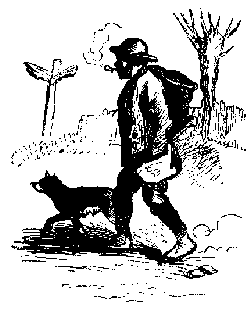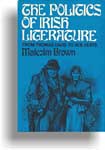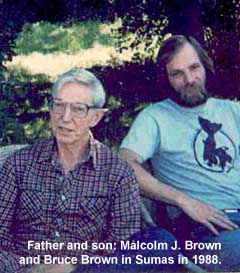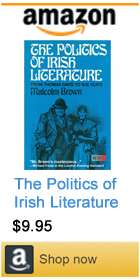Chapter Five
The Retreat from Clontarf
AFTER CLONTARF the decay of O'Connell's Repeal movement spread uncontrolled. The state trials absorbed the full energies of all the leaders for nearly a year, leaving the agitation to peter out week by week. In leisurely time the defendants were tried and convicted by an all-Orange jury. Delay of sentencing killed several more months. Finally they were called up in June 1844 and sentenced to one year's imprisonment in Richmond jail, south Dublin. Three months later came a pleasant surprise: on appeal, the House of Lords reversed the jury's verdict and freed the prisoners. The news reaching Dublin in the evening, O'Connell and the rest went home that night and slept in their own beds. Next morning they returned to Richmond to lead one of those great Dublin street processionals that mark the stages of Irish history, moving back in triumph through the city, cheered by a multitude which filled the street from curb to curb and stretched six miles from front to rear. The prisoners' carriages were drawn by joyful Repealers who earnestly trusted that the Liberator, once more free, would now lead them out of the maze of their tribulations. It was not an exorbitant hope, yet it would be many a long day before Dublin would have another triumph to celebrate.
Politically, O'Connell had come to a dead end. He had pushed moral force to its limits and had failed. Beyond, he thought he saw the abyss of "Jacobinism"; therefore the need of the day was for ordered retreat. But retreat to what? He was suddenly timid and uncertain and could not say, but the revival of the old Whig alliance at some opportune time was plainly on his mind.
A view of the prison yard at Richmond revealed an incongruous scene of the great prisoner: "addressed by bishops; complimented by Americans; bored by deputations; serenaded by bands; comforted by ladies; half smothered with roses; half drowned in champagne" -- a much-pampered convict. "In an elegant tent, with a green flag flying over it, O'Connell, with his green Mullaghmast cap on, received his deputations and made them gracious answers, not without a seasoning of merry jest. Through the trees, and amongst parterres of flowers, one might see `the martyrs' and their friends sauntering about."' This sarcasm of John Mitchel's insinuated that O'Connell in Richmond jail had already betrayed Repeal. His speech on his release bore out the suspicion, for he spoke warmly of the Whigs and announced that the monster meetings would not be resumed. The meeting at Clontarf, he said, "was called legally, it was illegally prevented from meeting," hence "we are bound to vindicate a great principle." But vindication did not lie in actually holding that meeting; that was not at all necessary since "the principle has been sufficiently vindicated by the House of Lords." So far from Tara of the Kings had the eleven months in criminal court taken him.
He was now seventy years old and failing. The anxieties of the state trials had deeply afflicted him, and the disease that Young Ireland later liked to call by the lurid name "softening of the brain" was already perceptible in the confusion of his behavior. He spent more and more time with his beagles at Darrynane, leaving the business of the Repeal movement to the care of his petty and treacherous son John. A sympathetic weariness overtook his followers. The skyrocketing of income from the Repeal rent was long past; now its steady fall was a weekly reminder of failure at hand.
II
The Repeal Association maintained a busy surface optimism, but under it lay the shameful fact that none could deny but few were bold enough to mention: O'Connell's ludicrous self-exposure. The Young Irelanders had mostly agreed with O'Connell's guess that Repeal was going to be won cheaply. They were perhaps not so euphoric as the Liberator, who grandly guaranteed at Roscommon that "the hour is approaching, the day is near, the period is fast coming when-believe me who never deceived you-your country shall be a nation once more."3 The Nation was unclear how a monster meeting "could conquer a great army,"4 yet it was as severely jolted as O'Connell himself when Wellington's cavalry rode out through the streets to Clontarf. The Young Irelanders might be said to have shared somewhat in the moral onus of the fiasco. But not holding any position of authority in the association, they had no actual responsibility and were free to dissociate themselves from it.
From the moment of O'Connell's surrender to Peel's proclamation, the Young Irelanders regarded him as an obstacle blocking the path of Irish nationalism. In the first hours following Clontarf, Davis' anger had flashed out in a ballad entitled "We Must Not Fail," with the chilling word "coward" plain to see:
- We took the starving peasant's mite
- To aid in winning back his right,
- We took the priceless trust of youth;
- Their freedom must redeem our truth.
- ......................
- Earth is not deep enough to hide
- The coward slave who shrinks aside;
- Hell is not hot enough to scathe
- The ruffian wretch who breaks his faith.
These verses did not say that O'Connell should have brought a regiment of pikemen out to Clontarf, but they certainly did say that he should have held fast, faced up to Wellington's dragoons, and let the consequences be what they might...
|
|
Table of Contents
|

|
Astonisher.com is pleased to offer these excerpts from The Politics of Irish Literature by Malcolm Brown...
Praise for
The Politics of Irish Literature |
 |
|
"This brilliant study of the intersection of politics and literature in Ireland amounts to a dazzling portrait gallery. Reading it one feels about one the breath, warmth, and passions of the dead all come alive again."
-- Sean O'Faolain in the Manchester Guardian
"Mr. Brown's masterpiece has made me want to hire a nearby housetop and recite whole chunks to every passerby..."
-- Michael Foote in the London Evening Standard
"The author of the best book on George Moore now gives us what is in all likelihood the best book on the politics of modern Irish literature."
-- Virginia Quarterly Review
|
|

University of Washington Professor Malcolm J. Brown (1910 - 1992) with his son, Bruce Brown, in Sumas, WA, July 1988.
|
Additional reading -- Malcolm Brown's George Moore: A Reconsideration. Also see Bruce Brown's commentary on The History of the Corporation for Malcolm Brown's contribution to that work.
|
|
|






